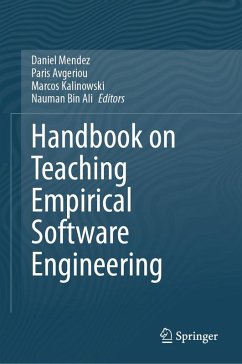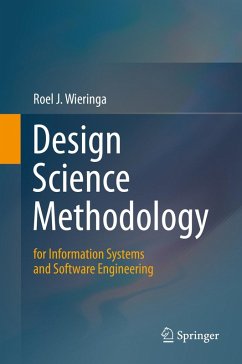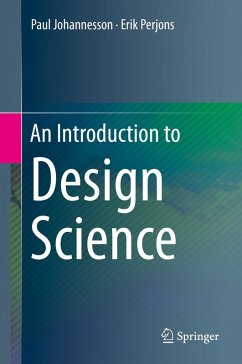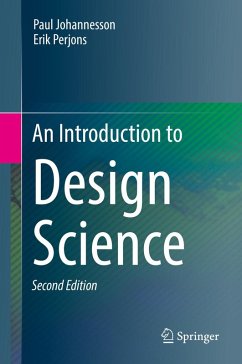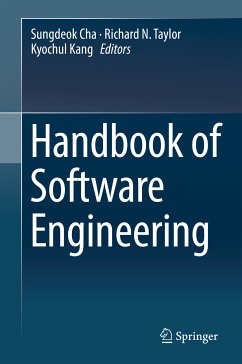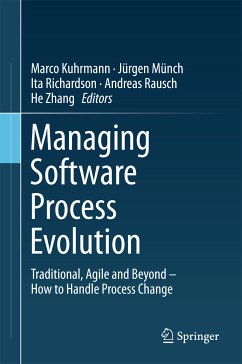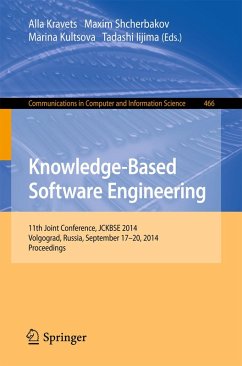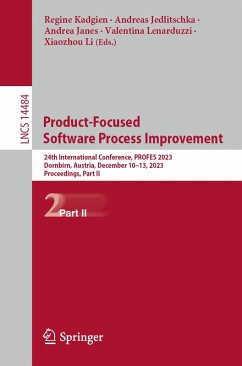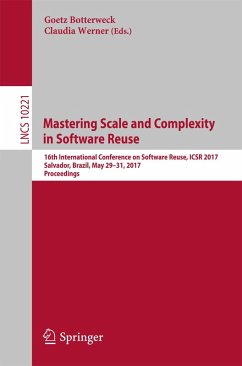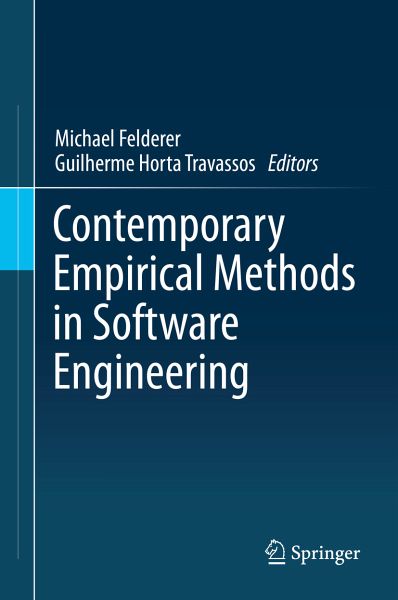
Contemporary Empirical Methods in Software Engineering (eBook, PDF)
Versandkostenfrei!
Sofort per Download lieferbar
112,95 €
inkl. MwSt.
Weitere Ausgaben:

PAYBACK Punkte
56 °P sammeln!
This book presents contemporary empirical methods in software engineering related to the plurality of research methodologies, human factors, data collection and processing, aggregation and synthesis of evidence, and impact of software engineering research. The individual chapters discuss methods that impact the current evolution of empirical software engineering and form the backbone of future research.Following an introductory chapter that outlines the background of and developments in empirical software engineering over the last 50 years and provides an overview of the subsequent contributio...
This book presents contemporary empirical methods in software engineering related to the plurality of research methodologies, human factors, data collection and processing, aggregation and synthesis of evidence, and impact of software engineering research. The individual chapters discuss methods that impact the current evolution of empirical software engineering and form the backbone of future research.
Following an introductory chapter that outlines the background of and developments in empirical software engineering over the last 50 years and provides an overview of the subsequent contributions, the remainder of the book is divided into four parts: Study Strategies (including e.g. guidelines for surveys or design science); Data Collection, Production, and Analysis (highlighting approaches from e.g. data science, biometric measurement, and simulation-based studies); Knowledge Acquisition and Aggregation (highlighting literature research, threats to validity, and evidence aggregation); and Knowledge Transfer (discussing open science and knowledge transfer with industry).
Empirical methods like experimentation have become a powerful means of advancing the field of software engineering by providing scientific evidence on software development, operation, and maintenance, but also by supporting practitioners in their decision-making and learning processes. Thus the book is equally suitable for academics aiming to expand the field and for industrial researchers and practitioners looking for novel ways to check the validity of their assumptions and experiences.
Chapter 17 is available open access under a Creative Commons Attribution 4.0 International License via link.springer.com.
Following an introductory chapter that outlines the background of and developments in empirical software engineering over the last 50 years and provides an overview of the subsequent contributions, the remainder of the book is divided into four parts: Study Strategies (including e.g. guidelines for surveys or design science); Data Collection, Production, and Analysis (highlighting approaches from e.g. data science, biometric measurement, and simulation-based studies); Knowledge Acquisition and Aggregation (highlighting literature research, threats to validity, and evidence aggregation); and Knowledge Transfer (discussing open science and knowledge transfer with industry).
Empirical methods like experimentation have become a powerful means of advancing the field of software engineering by providing scientific evidence on software development, operation, and maintenance, but also by supporting practitioners in their decision-making and learning processes. Thus the book is equally suitable for academics aiming to expand the field and for industrial researchers and practitioners looking for novel ways to check the validity of their assumptions and experiences.
Chapter 17 is available open access under a Creative Commons Attribution 4.0 International License via link.springer.com.
Dieser Download kann aus rechtlichen Gründen nur mit Rechnungsadresse in A, B, BG, CY, CZ, D, DK, EW, E, FIN, F, GR, HR, H, IRL, I, LT, L, LR, M, NL, PL, P, R, S, SLO, SK ausgeliefert werden.



